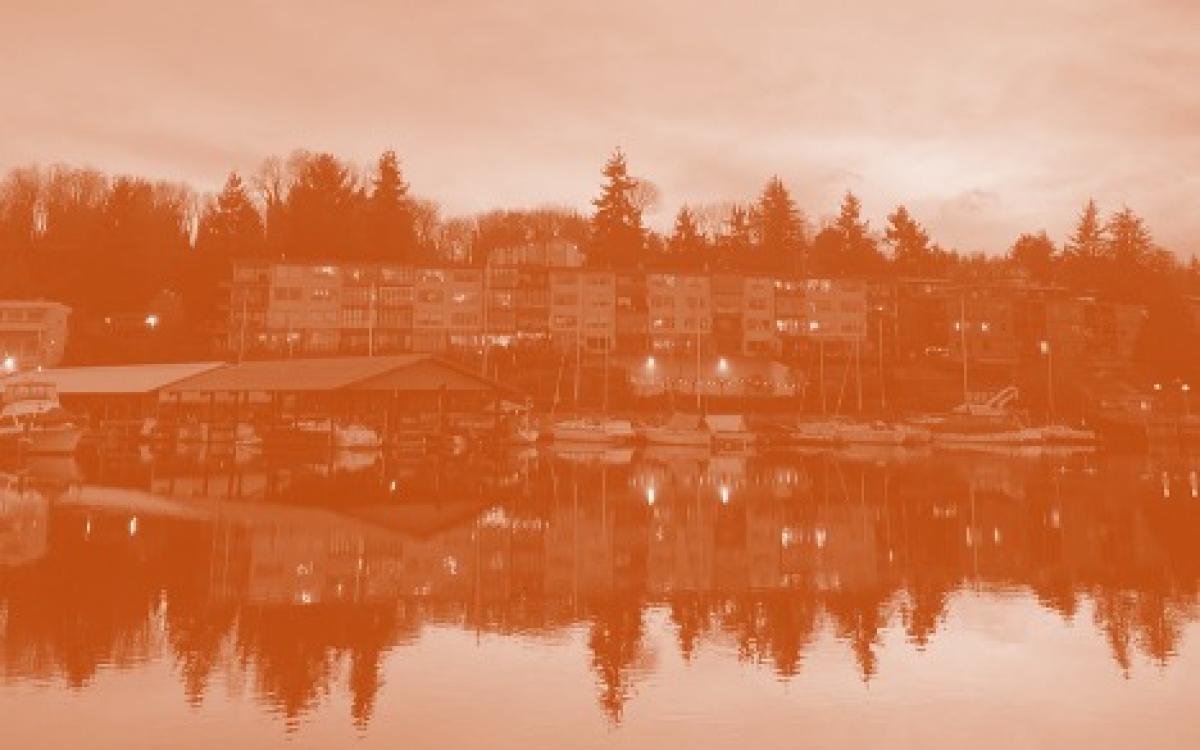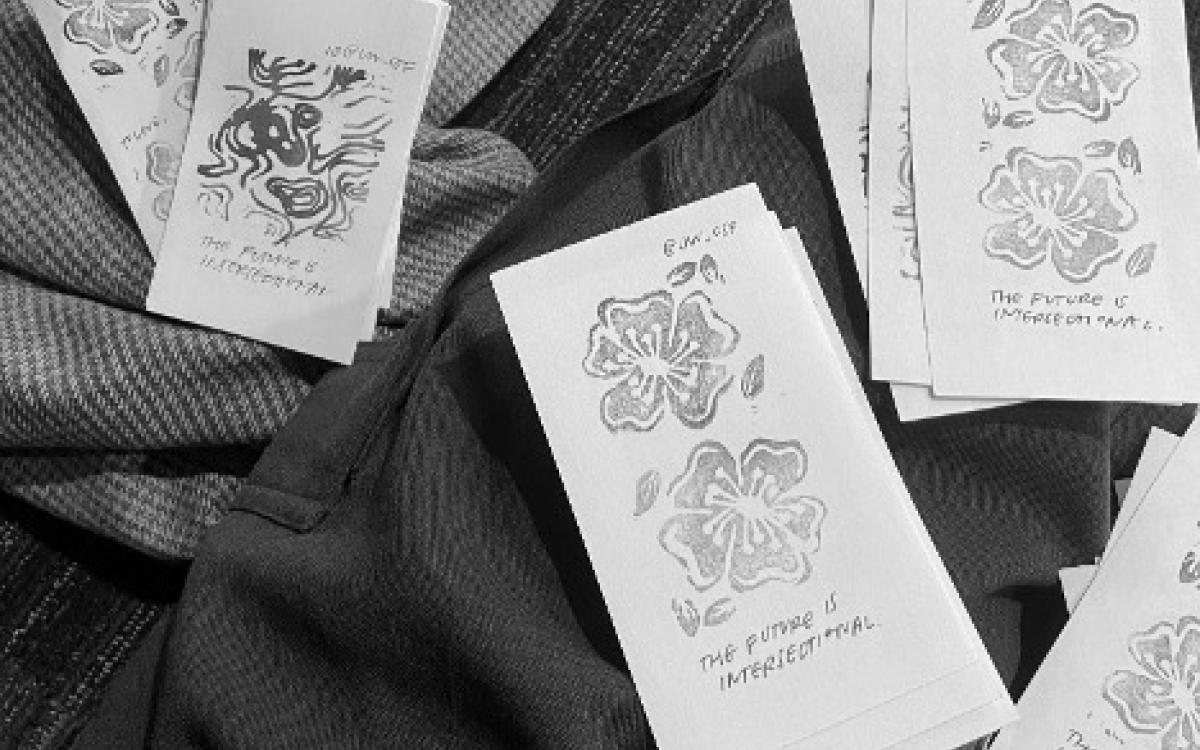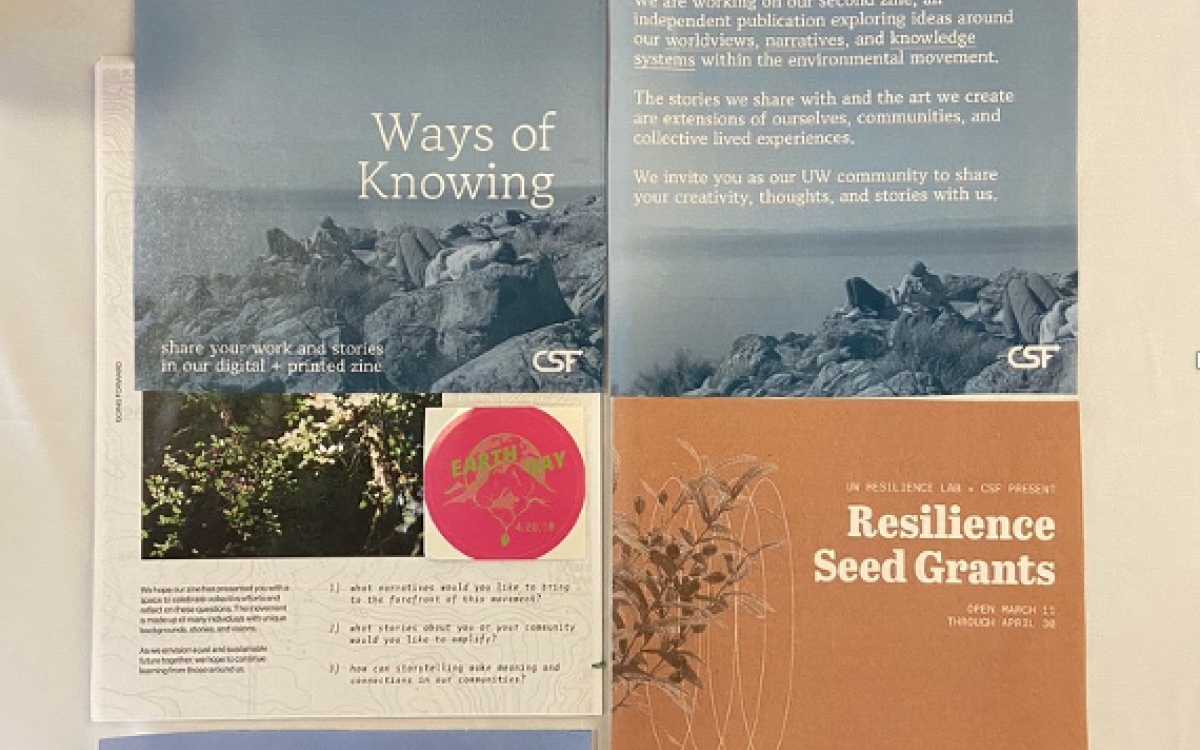ASUW Student Food Cooperative (@asuwsfc)
- Collaborative student co-op focused on conscious consumption, ethically, sourced, and affordable food
- Current projects include: Communities of UW Cookbook, bi-annual Humble Feast, ASUW Bean Basket (bulk food store located on-campus)
- Learn more at: ASUW SFC
Dirty Dozen Farm Club (@uwfarmdirtydozen)
- UW student farm organization committed to engaging in the full cycle of the food system (e.g. urban agriculture, gardening, harvesting)
- Undergraduate RSO associated with the UW Farm
- Weekly meetings, work parties, farm shifts
ECC – Samuel E. Kelly Ethnic Cultural Center (@uw_ecc)
- Located on West Campus
- Inclusive and affirming space that serves and empowers historically marginalized and underrepresented students
- Largest cultural center in the United States
- Programs include: Leadership Without Borders, ECC events, RSO resources
- Learn more at: Samuel E. Kelly Ethnic Cultural Center
EPSA – Environmental Policy Student Association (@epsauw)
- Environmental policy group dedicated to centering justice and intersectionality
- Focus on knowledge sharing and professional development by connecting peers with one another and experts in the field
- Undergraduate RSO
- Learn more at: EPSA
First Nations @UW (@firstnationsuw)
- Intertribal organization and community for Indigenous students
- Educating the community about Indigenous cultures, spreading awareness to issues affecting communities, and upholding customs and traditions
- Undergraduate RSO
- General meetings, annual spring Powwow
- Learn more at: First Nations @ UW | UW Native Organization
ICA – Institutional Climate Action UW Chapter (@ica_uwchapter)
- Student-organized coalition of students, faculty, staff, and alumni across Washington state demanding higher education institutions model the Just Transition framework to an equitable green future
- Fossil Free U campaign, weekly coalition meetings
- Learn more at: Institutional Climate Action
Project Indoor Farm (@projectindoorfarm)
- Student organization, first student-run indoor farm at the UW
- Educational space for students to connect with food through urban farming
- Learn more at: Project Indoor Farm
Q Center – University of Washington Q Center (@uwqcenter)
- Located in the HUB (Room 315)
- Educational, social, advocacy center focused on gender and sexuality
- Resources include: free menstrual supplies, school supplies, hangout spaces
- Learn more at: Q Center
SEED – Students Expressing Environmental Dedication (@uw_seed)
- Student organization working with residents and UW Housing & Food Services (HFS) to bring awareness on sustainability choices
- Undergraduate RSO, aimed at students living in the dorms
- Current projects include: dorm compost bins, OZZI reusable containers
- Weekly meetings, hall council representatives, on-campus job opportunities
- Learn more at: UW SEED
SER-UW – Society for Ecological Restoration UW Chapter (@ser.uw)
- Student organization focused on increasing the biodiversity and ecosystems on campus while connecting students to green spaces
- Sites across campus with CSF funding
- Current projects include: restoration site work parties, native plant nursery
- Weekly volunteering opportunities, community building
- Learn more at: Society for Ecological Restoration UW
UW Alene Morris Women’s Center
- Education programs, leadership development for advocacy for girls and women focused on breaking down gender based barriers
- Programs and services open to all students, staff, faculty, and community members
- Current programs include: Moris Leadership Academy
- Learn more at: Alene Moris Women’s Center
UW Farm (@uwfarm)
- Three on-campus locations at McMahon Hall, Mercer Court, and the Center for Urban Horticulture
- 1.5 acre student-powered urban organic farm
- Produce for campus dining, the UW Food Pantry, and the community through the Community Support Agriculture (CSA) program
- Volunteer, internship, and job opportunities for UW students
- Learn more at: UW Farm | University of Washington Botanic Gardens
UW Food Pantry (@uwfoodpantry)
- Located on West Campus in at Poplar Hall
- Providing food assistance to UW students, staff, and faculty members
- Offers shelf-stable products, UW Farm organic produce, ready-to-eat meals, and hygiene products at no cost to visitors (bring your Husky ID & tote bags)
- Community partner of the University District Food Bank
- Learn more at: The UW Food Pantry | Any Hungry Husky
UW Green Square
UW Solar (@uwsolar)
- Interdisciplinary, student-run, solar project
- Undergraduate and graduate RSO, part of the Urban Infrastructure Lab
- Participates in the planning, design, and development of solar/electrification related projects on campus (e.g. electric vehicles, charging, energy storage)
- Learn more at: UW Solar
WashPIRG – Washington Public Interest Research Group (@washpirg_uw)
- Student-led, student-funded activist group
- Undergraduate RSO, UW chapter of WashPIRG organization
- Current campaigns include: 100% renewable energy, affordable higher education, break free from plastics, new voters project, etc.
- Weekly meetings, grassroots campaigns, on-campus job/internships
- Learn more at: WASHPIRG Students
wǝɫǝbʔaltxʷ – Intellectual House
- Located on North Campus on Little Canoe Channel
- Learning center and gathering space for American Indian and Alaska Native students, faculty, staff, and community members
- Learn more at: wǝɫǝbʔaltxʷ – Intellectual House – Diversity at the UW
Compiled by our staff, organized by topic.
Course | Course Name | Quarter Offered | Credits | Prerequisites? |
|---|---|---|---|---|
AIS 385 | Indigenous Ecologies and Climate Change | Autumn | 5 | N/A |
ESS 201 | Earth’s Climate System | Spring | 3 | Yes |
ENVIR 100 | Introduction to Environmental Studies | All | 5 | N/A |
JSIS B 351 | The Global Environment | Autumn | 5 | N/A |
ATM S 111 | Global Warming: Understanding the Issues | All | 5 | N/A |
Course | Course Name | Quarter Offered | Credits | Prerequisites? |
|---|---|---|---|---|
HSTAA/ENVIR 221 | US Environmental History: Ecology, Culture, Justice | Autumn | 5 | N/A |
ENVIR/ESRM 460 | Power, Privilege, and Preservation | Spring, Summer | 5 | N/A |
CEP 460 | Planning in Context | Autumn | 5 | N/A |
GEOG 272 | Geographies of Environmental Justice | Spring | 5 | N/A |
Course | Course Name | Quarter Offered | Credits | Prerequisites? |
|---|---|---|---|---|
DIS ST/CHID 230 | Introduction to Disability Studies | Autumn | 5 | N/A |
AIS/JSIS A 270 | Native Peoples of the Northwest Coast | Autumn | 5 | N/A |
DIS ST/GWSS/ 335 | Sex, Gender, and Disability | Autumn | 5 | N/A |
GWSS 392 | Asian American and Pacific Islander Women | Autumn | 5 | N/A |
GWSS 496 | Global Feminisms: International and Indigenous Communities | Autumn | 5 | Yes |
CHID 485 | Comparative Colonialism | Autumn | 5 | N/A |
Course | Course Name | Quarter Offered | Credits | Prerequisites? |
|---|---|---|---|---|
PUB POL 201 | Introduction to Public Policy and Governance | Autumn | 5 | N/A |
ENVIR/SMEA 201 | Climate Governance: How Individuals, Communities, NGOs, Firms, and Governments Can Solve the Climate Crisis | Spring | 5 | N/A |
ENVIR 439 | Attaining a Sustainable Society | N/A | ||
CEP 470 | Tools for Sustainable Cities | Spring, Summer | 4 | N/A |
SMEA 430 | Development and the Environment | Autumn | 5 | N/A |
Course | Course Name | Quarter Offered | Credits | Prerequisites? |
|---|---|---|---|---|
ENGL 199 | Interdisciplinary Writing/Natural Science | Autumn | 5 | N/A |
AIS 307 | Indigenous Literature and the Environment | Autumn | 5 | N/A |
ENVIR 302 | Communications for Environmental Studies | Autumn, Winter, Spring | 5 | Yes |
COM 289 | Communication Power and Difference | Autumn | 5 | N/A |
ENVIR 400 | Professional Environmental Communication | Winter | 5 | N/A |
ENGL 207 | Introduction to Cultural Studies | Autumn, Summer | 5 | N/A |
ENVIR/COM 418 | Communication and the Environment | Autumn | 5 | N/A |
Course | Course Name | Quarter Offered | Credits | Prerequisites? |
|---|---|---|---|---|
ENVIR 480 | Sustainability Studio | Autumn | 5 | N/A |
L ARCH 212 | Designing for the Future | Autumn | 5 | N/A |
CEP 200 | Introduction to Community, Environment, and Planning | Autumn, Winter | 5 | N/A |
B E 200 | Introduction to Built Environments | Autumn | 3 | N/A |
Course | Course Name | Quarter Offered | Credits | Prerequisites? |
|---|---|---|---|---|
GEOG 271 | Geography of Food and Eating | Autumn | 5 | N/A |
ANTH 361 | Anthropology of Food | Autumn | 5 | Yes |
NUTR/ENVIR 312 | Food System Sustainability and Resilience | 3 | N/A | |
NUTR 302 | Food Systems: Harvest to Health | Autumn, Spring | 5 | Yes |
Course | Course Name | Quarter Offered | Credits | Prerequisites? |
|---|---|---|---|---|
ENVIR 280 | Natural History of the Puget Sound Region | Autumn | 5 | N/A |
LSJ 401 | Field Experience in Law, Societies, and Justice | Autumn | 5 | N/A |
Course | Course Name | Quarter Offered | Credits | Prerequisites? |
|---|---|---|---|---|
G H/LAW 305 | Global Health and Justice | Winter | 3 | N/A |
ANTH 325 | Indigenous Knowledge and Public Health in Mexican and Latinx Origin Communities | 5 | N/A | |
ESRM/PSYCH 431 | Ecopsychology | 5 | N/A | |
GEOG 180 | Introduction to Global Health: Disparities, Determinants, Policies, and Outcomes | Autumn, Winter, Spring | 5 | N/A |
ENV H 306 | Health and Sustainability | Autumn, Spring | 5 | Yes |
Course | Course Name | Quarter Offered | Credits | Prerequisites? |
|---|---|---|---|---|
ENVIR 239 | Sustainability: Personal Choices, Broad Impact | Autumn, Winter, Summer | 5 | N/A |
ENGL 121 | Composition: Social Issues | Autumn | 5 | Yes |
COM 364 | Media Responsibility in a Diverse Society | Autumn | 5 | Yes |


